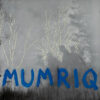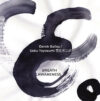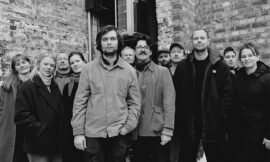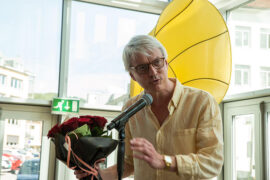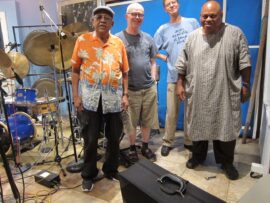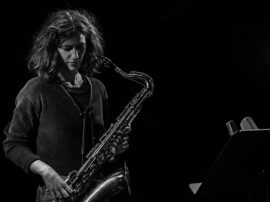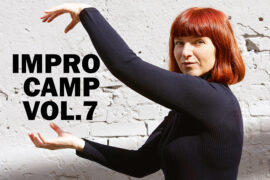
American, Brooklyn-based vocalist-composer-activist Amirtha Kidambi has long affirmed that the role of sound in the act of protest is pivotal and composed for her quintet, the Elder Ones, songs like «Eat The Rich» and «Decolonize The Mind». She took part in the mass demonstrations across New York City in the wake of the murder of George Floyd, organized bands to counter the violence of the militarized American police, and asked the bands to play in the streets, with DIY concerts under bridges and in tunnels, bringing the sound of experimental and revolutionary music to a larger public. She says that at that time she understood the power of collectivity, the same power that she feels as an improvising musician, where hierarchies are eliminated and individuals come together to assert their voices communally.
That kind of subversive and dissent spirit of collective dismantlement and reassemblage catalyzes the four extended pieces of the third album of the Elder Ones – bassist Eva Lawitts, saxophonist Matt Nelson, cellist Lester St. Louis and drummer Jason Nazary, all add electronic textures and electroacoustic treatments, New Monuments. The tiles refer to the «tearing down of old colonial and racist monuments and vestiges of power… to build new ones to the martyrs of struggle», and address the farmers’ protests over agricultural reforms in India, the evolution of the Iranian women’s rights movement following the death of Mahsa Amini, and the continuous crescendoing call for Palestinian liberation. The cover artwork by Justin Hopkins extends the album’s message and takes the viscera and the wreckage from the streets and reworking it into something beautiful. The album is dedicated to the late, fearless trumpeter jaimie branch, Kidambi’s friend and collaborator.
The rebellious and unsettling atmosphere of New Monuments draws inspiration from the Black American liberation music, Albert Ayler’s spiritual free jazz, Don Cherry’s new world music, the devotional Carnatic vocal music, punk and harsh noise, and employs improvisation and collective interplay as a means of resistance and liberation. This genre-bending, complex and layered music corresponds with Kidambi’s call for solidarity between Asians, Black Americans and other marginalized groups. The propulsive, repetitive and hypnotic polyrhythmic patterns, the chanting of poetic texts and mantras, and the call-and-response patterns intensify further this atmosphere of protest. Music, as Ayler said before, is the healing force of the universe. Kidambi’s Elder Ones’ New Monuments show that music can also envision radical alternatives and drive us into a change, that would not only be seen but heard.
Eyal Hareuveni
Amirtha Kidambi (vocals, harmonium, synthesizer, effects), Matt Nelson (soprano saxophone, effects), Lester St. Louis (cello, electronics), Eva Lawitts (bass, effects), Jason Nazary (drums, modular synthesizer)



